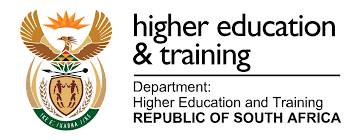Opinion Column
There are two factors necessary for NSFAS to deliver services to South African students. The first one is the inherent cooperation with learning institutions. The second factor is its (NSFAS) usage of academic progress to justify further funding of students. The problem is that NSFAS has no jurisdiction on the institutions from which it collects the necessary information.
A good public policy can only pass its litmus test by its relevance on the ground. Students register at colleges banking on NSFAS money for their transport costs. NSFAS; however, do not pay at the time of need, they know they have to pay but their bureaucratic paper work comes first and students later.
Well, it is tempting to put the blame on NSFAS’ door right away; it is them who are the fund trustees and finally the ball is in their court as to who to pay and who not to fund. Needless to say, colleges play a pivotal role in the provisioning of data necessary to process the recipient.
NSFAS have the power to regulate itself and its processes but the power is limited to itself; the entity cannot force colleges to do the right things: capturing students’ information on time and ensuring that the data captured is validated and confirmed. To aggravate the situation, NFAS relies on the very same colleges to determine students progress which is a prerequisite for continued funding.
From a policy point of view, the contextual environment in which NSFAS operate is such that the entity is often blamed for errors that are external; mainly originating from poor planning and shoddy management practices in colleges.
For example, many of the colleges do not start teaching on the planned dates, students are admitted even after lessons have started making them prey to the 80% attendance rule. There is only one generic method of calculating attendance. There are just no different maximum days for each student based on the actual day registered.
No wonder you have students who quiet their college studies as early as February and March because of lack of transport money. Reason? Either the data entered is wrong or some reason whose source has to do with poor institutional management in colleges.
The worst thing that could happen to orphans and poor youth is when the system fails them by not providing NSFAS data on time, making students to drop from college; as if that is not enough, the poor students would then be backlisted or barred from benefitting from NSFAS henceforth.
Policy crafting should address unintended results but you cannot do so successful in an environment characterized by separate departmental jurisdictions. South Africa s’ cooperative government in which government departments and levels of government work together rather work separately and take one another to court is not without unforeseen problems.
Colleges do not account on behalf of NSFAS and they know it. NFSAS can only request information from colleges but cannot force colleges to do so. This makes NFAS a lame duck that can only lay in wait for the colleges’ response.
The results cannot be different from the appalling conditions playing out in colleges: Students come to school very tired after walking for many kilometres; girls have been reported raped either going to or coming from college. Students often abandon college as an alternative, looking for a job stint in the meanwhile – Incurring the wrath of ineligibility for future assistance by NSFAS.

